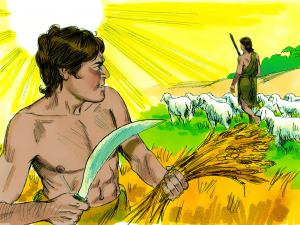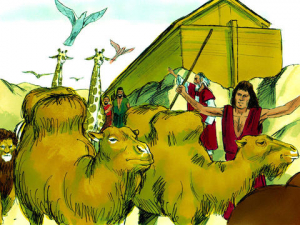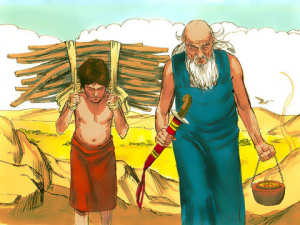Children’s Bible Program – Level 3: Lesson 12 “Inheriting the Promises”

Author: Janth English
Read Together: After Abraham showed God that he would obey Him no matter what, God made His promises to Abraham unconditional. These promises included rulership, military power, and ownership of the most productive land on earth. Yet, Abraham died without having received them. Did God lie? No! God passed the promises on to Abraham’s son Isaac, and from Isaac to Jacob. Jacob, whose name was changed to Israel, had twelve sons, who next received the promises. Through Jacob, God gave the “scepter” promise, which includes kingship and the promise of the future Messiah, to Judah. A scepter is a staff that a king holds, which represents his rulership and authority. The promise of the Messiah was fulfilled in Jesus Christ, who was born of the tribe of Judah and who will rule over all nations. The “birthright” promise of national wealth and greatness was given to Joseph. The English-speaking nations of today, who are descendants of Joseph’s sons, Ephraim and Manasseh, have inherited the birthright promises. Many of the blessings we enjoy today are a direct result of Abraham’s obedience to God, and God’s faithfulness in fulfilling His promises to Abraham.
Read Together: Genesis 35:9–15; 48:8–20; 49:1–2, 8–12, 22–26; Hebrews 7:14
Discuss:
- Ask your child how they think Abraham felt about not receiving all the promises during his physical life. What was Abraham’s focus (Hebrews 11:13–16)?
- Encourage your child to think about the millennium. Will Jesus Christ be the Messiah and King of kings? Will the descendants of Jacob possess national wealth and greatness?
- Remind your child that the identity of the English-speaking peoples can be proven. Refer to the booklet The United States and Britain in Prophecy by Mr. John Ogwyn.
Review memorization:
Genesis 18:19 “For I have known him, in order that he may command his children and his household after him, that they keep the way of the LORD, to do righteousness and justice, that the LORD may bring to Abraham what He has spoken to him.”




